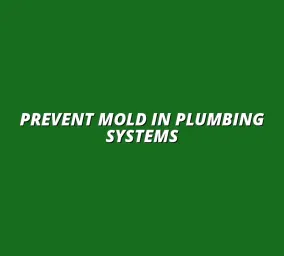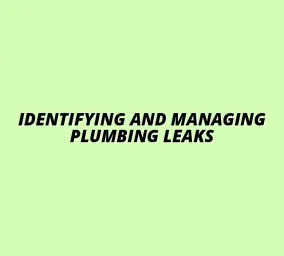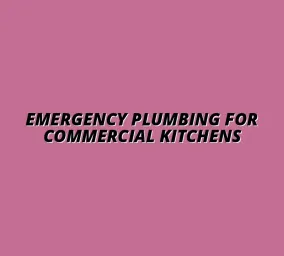Quick Fixes for Clogged Sinks
Understanding the Causes of a Clogged Kitchen Sink
Clogged kitchen sinks are more than just a nuisance; they can disrupt your entire cooking routine! Understanding the root causes of these clogs is essential for effective prevention and treatment. Let’s dive into some common reasons why your kitchen sink may be facing drainage issues.
Common Reasons for Kitchen Sink Clogs
One of the primary reasons for clogged sinks is the accumulation of food debris and grease. When washing dishes, leftover food particles and greasy substances can accumulate in the drain, forming a tough blockage over time. This build-up restricts water flow, leading to frustrating clogs.
Another significant contributor to clogged sinks is the improper disposal of non-biodegradable items. Items like paper towels, plastic wrappers, and other materials should never be tossed down the drain. These materials can quickly cause serious blockages, making it challenging to keep your sink functioning smoothly. For helpful DIY tips to prevent sink clogs altogether, check out these DIY tips to prevent sink clogs.
- Food particles, such as rice, pasta, and vegetable scraps
- Grease from cooking oils and fats
- Non-biodegradable items like paper towels and plastic
Signs Indicating a Clogged Sink
Recognizing the signs of a clogged kitchen sink is key to addressing the issue quickly. One of the most common indicators is slow drainage and backflow issues. If you notice water pooling in the sink or slow to drain, it’s time to take action!
Another telltale sign is the presence of unpleasant odors and gurgling sounds. A clogged sink can emit foul smells from trapped food and waste, while gurgling noises can signal air trapped in the pipes. These sounds often indicate that your plumbing is struggling to handle the blockage. If you're facing a clogged drain emergency, quick action is crucial.
- Water pooling or draining slowly
- Foul smells coming from the drain
- Gurgling sounds during drainage
Immediate Steps to Address a Clogged Kitchen Sink
When you’re faced with a clogged kitchen sink, knowing the immediate steps to take can save you time and frustration! Addressing the issue quickly can prevent further damage and restore your sink to working order. Let’s explore what to do next!
Preventive Measures to Avoid Future Clogs
Preventing a clogged kitchen sink is much easier than dealing with one! By adopting a few simple practices, you can keep your drains flowing smoothly. Regular attention to your sink can save you time, money, and frustration down the line.
First and foremost, maintaining good habits in the kitchen is crucial. Each time you wash dishes or prepare food, think about how you can minimize debris entering the sink. Following the right steps can significantly reduce the chances of clogs. For comprehensive guidance on maintaining your plumbing year-round, visit our resource page.
Regular Maintenance Tips for a Healthy Kitchen Sink
Regular maintenance is a key factor in ensuring your kitchen sink stays clog-free. Here are some effective tips to keep your sink in top shape:
- Run hot water regularly: After washing dishes, run hot water down the drain for a minute to help dissolve grease.
- Clean sink baskets: Empty the sink strainer regularly to prevent debris buildup.
- Inspect the drain: Check your sink’s drain for any signs of slow drainage or odors that might indicate a developing clog.
Implementing Proper Disposal Habits
What you throw down your kitchen sink has a huge impact on its health. Implementing proper disposal habits can prevent future clogs. Here are some tips on what to avoid:
- Avoid pouring grease: Grease hardens in pipes, causing clogs. Instead, dispose of it in a container.
- Don’t use the sink for food scraps: Even small food particles can accumulate over time. Use a compost bin or trash can.
- Be cautious with fibrous foods: Foods like celery or potato skins can tangle and form clogs. Always dispose of these properly.
Using Sink Strainers to Catch Debris
Using sink strainers is an easy yet effective way to prevent debris from entering your pipes. A simple mesh strainer can catch food particles, hair, and other materials that might cause clogs. Regularly cleaning your strainer will ensure it's doing its job effectively!
Adding a strainer can also help reduce the amount of scum that builds up in the sink. Don’t forget to check and clean it regularly to maintain its functionality! For more detailed advice on fixing a clogged kitchen sink, visit our guide: Fixing a Clogged Kitchen Sink.
Common Misconceptions about Kitchen Sink Care
There are many myths surrounding kitchen sink care that can lead to problems. Let’s clear some of these misconceptions to help you maintain a healthy sink!
- Myth: Anything can be washed down the sink: Not true! Certain items, like oils and fibrous vegetables, should never go down the drain.
- Myth: All drain cleaners are safe: Some can damage your plumbing. Always read labels and consider safer alternatives.
What Not to Dispose of in Your Kitchen Sink
Being aware of what not to dispose of in your kitchen sink is vital. Here’s a quick list of items you should avoid:
- Cooking oils and fats
- Starchy foods like pasta and rice
- Eggshells and coffee grounds
- Non-food items like paper or plastic
The Role of Hot Water in Maintaining Clear Drains
Hot water plays a significant role in keeping your kitchen sink drains clear. Regularly running hot water helps to dissolve grease buildup and flush away small particles. You might be surprised just how effective this simple step can be!
Incorporating this method into your routine can contribute greatly to the longevity and efficiency of your plumbing. So, whenever you're finished with dishwashing, remember that hot water is an ally! Regular flushing of your water heater can also help: Flush Your Water Heater Regularly.
Frequently Asked Questions about Kitchen Sink Clogs
Managing a kitchen sink can raise many questions. Here are some frequently asked questions that might help guide your approach!
How to Tell if You Need a Professional Plumber?
Knowing when to call a professional plumber can save you a lot of hassle. Here are some signs that indicate you might need expert help:
- Persistent clogs: If your sink clogs frequently despite your best efforts, it might be time to call in a professional.
- Multiple clogged drains: If more than one drain in your home is slow, the issue might be with the main sewer line.
- Unusual noises: Gurgling or sounds of water backing up can signal serious plumbing issues.
Understanding the Signs of Serious Plumbing Issues
Be sure to pay attention to your plumbing system! Signs like water pooling under the sink, frequent backups, or odd smells can indicate serious plumbing problems. Addressing these early can save you money and frustration later on! For help preventing sewer line blockages, see our tips on preventing sewer line blockages.
Are Chemical Drain Cleaners Safe for Kitchen Sinks?
Many homeowners wonder about the safety of chemical drain cleaners. While they can be effective, they often come with risks. Here’s what you need to consider:
- Potential damage: Chemical cleaners can corrode pipes over time, especially older plumbing.
- Health risks: Fumes from these cleaners can be harmful, so always use them in well-ventilated areas.
- Environmental concerns: Many chemical cleaners can be harmful to aquatic life when they enter the water system.
Analyzing the Risks versus Benefits of Chemical Cleaners
While chemical drain cleaners can provide quick results, their long-term effects may not be worth it. Consider alternative methods such as using a plunger or baking soda and vinegar for a more eco-friendly solution! Always weigh your options carefully! If you need a plumber in Deritend, Birmingham, for example, you can find local services here.
Final Thoughts on Efficiently Unclogging Your Kitchen Sink
Unclogging a kitchen sink doesn’t have to be a daunting task! By taking preventive measures and understanding proper care, you can tackle clogs efficiently. Remember, it's all about adopting good habits that keep your plumbing in check!
Summary of Key Steps for Troubleshooting a Clogged Sink
To recap, here are some key steps for handling a clogged sink:
- Stay calm: Assess the situation first!
- Use basic tools: A plunger and hot water can often do the trick.
- Consider prevention: Implement regular maintenance to avoid future clogs.
Encouragement to Implement Preventive Measures
Don’t forget that taking small steps can lead to big results. Implementing these preventive measures can help ensure your kitchen sink runs smoothly for years to come. A little effort goes a long way!
Contact Information for Local Plumbing Services
If you ever feel overwhelmed, don't hesitate to reach out to your local plumbing services. They are there to help with any plumbing issues you might face. Keeping their contact information handy can be a lifesaver when times get tough!






